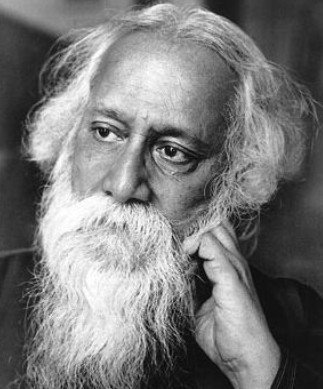(单词翻译:单击)
Books and Arts; Book Review;
文艺;书评;
Asia and the West;Never the twain
东西方;“欢喜冤家”
The intellectual roots of Asian anti-Westernism
亚洲知识分子反西化的学术根源
From the Ruins of Empire: The Revolt Against the West and the Remaking of Asia. By Pankaj Mishra.
源自帝国的废墟: 反抗西方,亚洲崛起。Pankaj Mishra著。

Rarely has the prestige of the West fallen lower in Asian eyes. Seemingly endless wars and the attendant abuses, financial crisis and economic malaise have made Europe and America look less like models to aspire to than dire examples to be shunned. In response, Asian elites are searching their own cultures and intellectual histories for inspiration.
以前,在亚洲人眼中,西方似乎得神庇护,很少落后于亚洲。不过,似乎没完没了的战争和随之而来的虐待、金融危机和经济瘟疫使欧洲和美国不再是亚洲人心中值得学习的榜样,却成为人们唯恐避之不及的悲惨对象。与之相照应的是,亚洲精英们正在本国文化和思想史中寻找灵感。
As Pankaj Mishra, a prolific Indian writer, shows in this subtle, erudite and entertaining account of Asian intellectuals’ responses to the West, much the same was true over a century ago. He defines Asia broadly, as bordering with Europe at the Aegean Sea and Africa at the River Nile. A century ago, what he calls “an irreversible process of intellectual…decolonisation” was under way across this huge region. For Mr Mishra, and many Asians, the 20th century’s central events were the “intellectual and political awakening of Asia and its emergence from the ruins of both Asian and European empires”. China and India have shaken off foreign predators and become global powers. Japan has risen, fallen and risen again. It is commonplace to describe the current century as Asia’s.
印度高产作家潘卡旭以精细、博学和有趣的文笔描绘出亚洲知识分子对西方的反应,他们的反应与一个多世纪前的人们的反应差不多。他把亚洲笼统地定义为一个在爱琴海区域与欧洲接壤、在尼罗河与非洲接壤的地区。据他所说,一个世纪以前,“一场不可逆转的思想非殖民化的过程”正在这一辽阔地区如火如荼地开展。对米希尔先生和很多亚洲人来说,20世纪的这一主要运动其实是“亚洲人的知识和政治上的觉醒,以及亚洲各国在亚洲强国和欧洲帝国殖民统治的废墟中崛起”。中国和印度都摆脱了外国列强的统治,并位于世界强国之列。日本则是强盛、倒下、又再次崛起。如今,二十一世纪被描绘成亚洲时代的这一说法是家喻户晓。
Mr Mishra tells the story of this resurgence through the lives of a number of pivotal figures, as they grappled with the dilemma of how to replicate the West’s power while retaining their Asian “essence”. He pays most attention to two, both little known in the West. One, Jamal al-Din al-Afghani, was like most of them “neither an unthinking Westerniser, nor a devout traditionalist”. Despite his name, and despite a tomb in Kabul restored at America’s expense, al-Afghani was born in Persia in 1838. An itinerant Islamist activist, he also spent time in Egypt, India, Turkey and Russia, railing against the feebleness and injustices of Oriental despotisms and the immorality of Western imperialism, and trying to forge a Pan-Islamic movement. He had the ear of sultans and shahs.
通过再现历史风云人物的生活,米什拉讲述了国家复兴的故事,但这些风云人物为在确保亚洲“核心”的同时,如何复制西方强国的繁荣而进退两难、烦恼不已。对西方世界完全陌生的两个人,他在笔墨间却倾注了很多关心。一位是哲马鲁丁•阿富汗尼,就像大多数的历史人物一样“并非不加思考的照搬西方者,也非食古不化的传统者”。尽管他的姓名很奇怪,美国人修整了喀布尔(阿富汗的首都)的坟墓,1838年,阿富汗尼出生在波斯(西南亚国家,现称伊朗)。作为一名行走中的伊斯兰积极分子,他在埃及、印度、土耳其和俄国都呆过,他抱怨东方独裁统治的脆弱和不公,也责怪西方帝国主义的不道德,甚至试图开展泛伊斯兰教运动。他有苏丹(某些伊斯兰国家统治者的称号)和伊朗国王的耳目。
The other main character is Liang Qichao, a leading Chinese intellectual in the twilight of the last imperial dynasty, the Qing, and the chaotic early years after it fell in 1911. Steeped in the old Confucian traditions and aghast at the weak new republic, he came to the conclusion that “the Chinese people must for now accept authoritarian rule; they cannot enjoy freedom”. Writing in 1903, however, he saw this as a temporary phenomenon. He would have been surprised to find China’s rulers today arguing much the same.
另一个主人公是梁启超,中国最后一个封建王朝——清朝的一个杰出知识分子,他在晚清时期和清王朝1911年被推翻后,混乱不堪的最初几年里都有很大影响。他深受传统儒家思想的毒害,却又被脆弱的新民主共和国吓呆了,所以得出一个结论:“从现在起,中国人必须接受帝制统治的现实,他们享受不了自由”。这句话写于1903年,他把民国时期的存在视为暂时现象。如果看到现在的中国,他可能惊讶地发现当今的统治者也在抱怨同样的问题。
Two other developments would also have surprised these men. The first is how disastrously some of the syntheses of West and East worked out: from Mao’s and Pol Pot’s millenarian communism, to al-Qaeda’s brand of Islamist fundamentalism and Japan’s replication of the worst traits of Western imperialism.
其它两个发展也可能吓着这样的人。第一个是西方和东方的一些结合体造成的灾难性影响:从毛泽东时代和Pol Pot’s的千年共产主义,到打着伊斯兰原教主义旗号的基地组织和日本复制西方帝国主义的陋习。
Japan’s later aggression helps explain the other surprise: that in many ways the links between Asian thinkers look more tenuous now than they did a century ago. Then, men such as Liang, or Rabindranath Tagore (pictured) from Bengal, would travel to Tokyo. They would dream of a pan-Asian response to the West, inspired by Japan’s example. China is now the coming Asian power, but it is not an intellectual hub of pan-Asianism, either in Communist orthodoxy or in efforts to revive Confucianism. And the Islam of al-Afghani’s ideological heirs has made little headway in non-Muslim countries.
之后日本侵略各国的事实帮助解释了另一件奇事:从很多方面看来,现在亚洲思想家间联系比千年前的思想家们的联络都苍白无力。那时,像梁启超这样的人,或者来自孟加拉的Rabindranath Tagore(如照片),会去日本旅行。受日本的启发,他们会梦想着不惧美国,泛亚主义。中国现在是崛起中的亚洲强国,但它却不是亚洲主义——正统共产主义或努力复活儒家思想——的知识分子聚集地。而阿富汗尼的意识形态的伊斯兰教继承者在非穆斯林国家也几乎没有取得进步。
There is one contemporary Asian phenomenon that, Mr Mishra notes, would seem far less surprising to the author’s subjects than to many present-day Westerners. That is the depth of anti-Western feeling. Millions, he writes, “derive profound gratification from the prospect of humiliating their former masters and overlords.” That prospect, however, masks what Mr Mishra concedes is an “immense intellectual failure”, because “no convincingly universalist response exists today to Western ideas of politics and economy”.
米什拉先生指出,当今亚洲的一个现象是,似乎亚洲知识分子对作者举出的人物的关注程度远不如当今的很多西方人。惊讶,这是很多反西的亚洲人内心的感受。相反,他写道,数百万的人“从羞辱自己祖先和君主的过程获得极大的满足感。”然而,米什拉先生得出结论,这一前景是“知识分子最大的失败”,因为“因为现今,对西方思想家的政治和经济的见解,亚洲人并没有令人信服的、普遍接受的回应存在。”
The ways of the West may not be working. Yet the alarming truth, Mr Mishra concludes, is that the East is on course to make many of the same mistakes that the West has made in its time.
西方的方法也不一定好用。米什拉先生总结说,值得警醒的事实是,东方人正在犯西方在发展时期犯过的同样错误。


